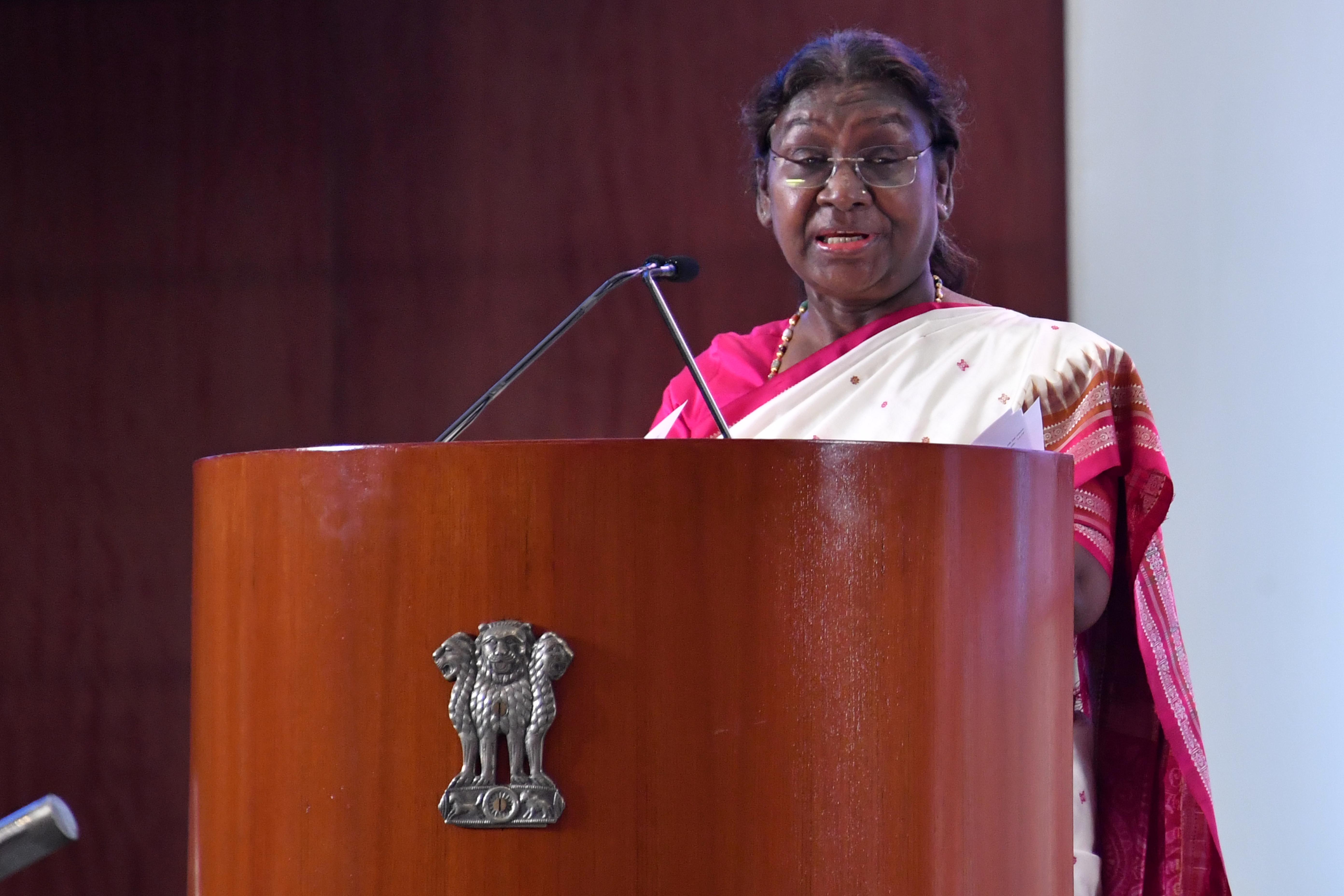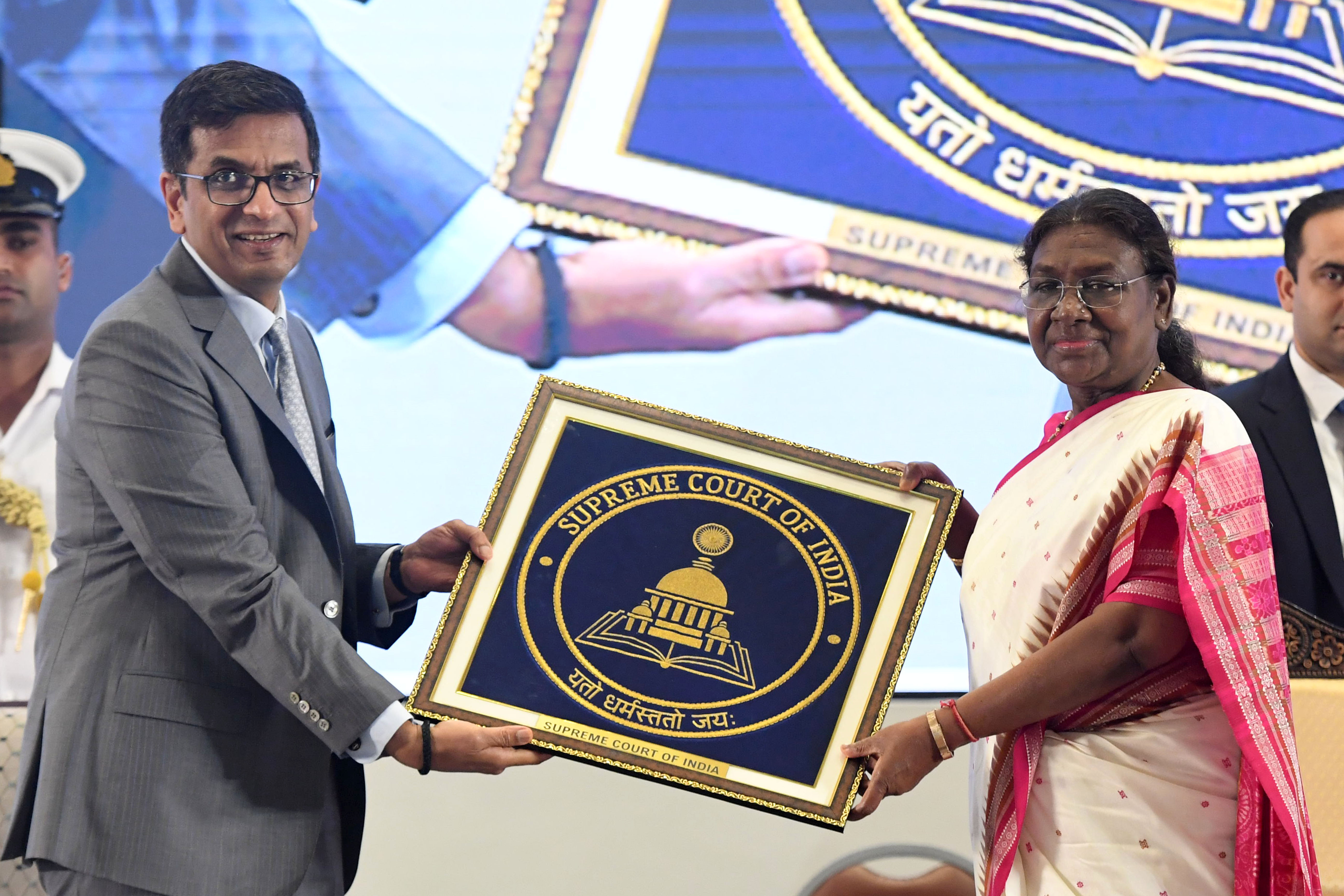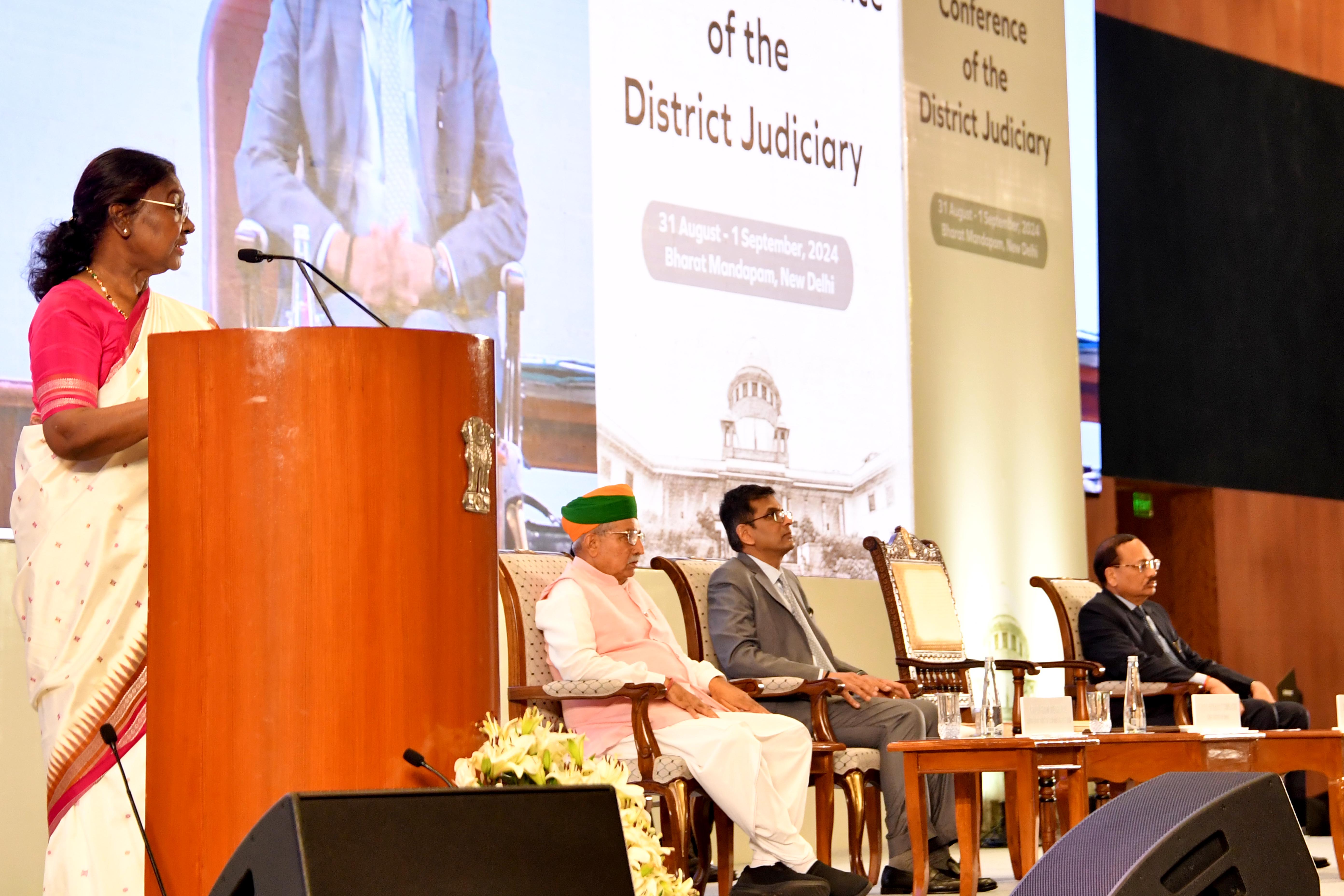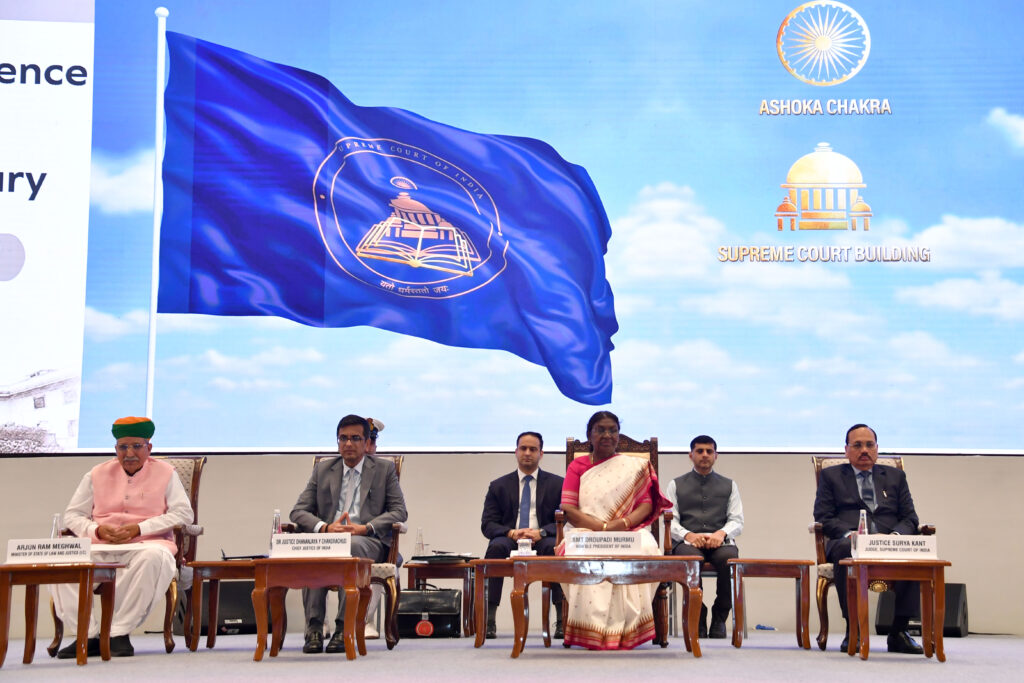New Delhi, Delhi, 1st of September, 2024 : The President of India, Smt. Droupadi Murmu graced the valedictory session of the two-day National Conference of District Judiciary, organised by the Supreme Court of India, in New Delhi today (September 1, 2024). She also unveiled the flag and insignia of the Supreme Court on the occasion.

Addressing the gathering, the President said that since its establishment, the Supreme Court of India has made an invaluable contribution as a vigilant sentinel of the judicial system of the world’s largest democracy. Indian jurisprudence has a very respectable place because to the Supreme Court. She appreciated the contribution of all present and past people associated with the Indian Judiciary. She was happy to note that on the completion of 75 years of its establishment, the Supreme Court has organized many programs that have increased people’s trust and attachment towards our judicial system.

The President said that the feeling of faith and reverence towards justice has been a part of our tradition. She referred to her address on a previous occasion and reiterated that people consider every judge in the country as God. Every judge and judicial officer of our country has the moral responsibility to respect dharma, truth and justice. At the district level, this moral responsibility is the lighthouse of the judiciary. The district-level courts determine the image of the judiciary in the minds of crores of citizens. Therefore, providing justice to the people through the district courts with sensitivity and promptness and at a low cost is the basis of the success of our judiciary.

The President said that in recent years there have been significant improvements in the availability of infrastructure, facilities, training and human resources of the judiciary at the district level. But, a lot remains to be done in all these areas. She was confident that rapid progress would continue on all dimensions of reform.
The President said that pendency and backlog of cases is a big challenge before the judiciary. She stressed the need to ponder upon the serious issue of cases remaining pending for as long as over 32 years.
She emphasised that programmes such as special Lok Adalat week should be organised more frequently. This will help in tackling the pendency of cases. All stakeholders have to find a solution by giving priority to this problem. She was happy to note that many aspects related to case management were discussed in one of the sessions of this conference. She expressed confidence that these discussions will yield practical results.
The President said that our Constitution provides for the power and responsibilities of the Legislative and Executive bodies at the local level through Panchayats and Municipalities. She asked if we could think of a justice system at the local level equivalent to these. She stated that making arrangements to provide justice in the local language and local conditions can help in achieving the ideal of taking justice to everyone’s doorstep.
The President said that there are many challenges before our judiciary which will require coordinated efforts by all stakeholders to resolve them. For example, the judiciary, government and police administration should work together to find solutions to issues related to evidence and witnesses.
The President said that when court decisions in a heinous crime like rape come after a generation has passed, the common man feels that the judicial process lacks sensitivity. She stated that it is a sad aspect of our social life that, in some cases, people with resources continue to roam around fearlessly and freely even after committing crimes. Those who suffer from their crimes live in fear as if those poor people have committed some crime.
The President said that the poor people from villages are afraid to go to court. They become a participant in the justice process of the court only under great compulsion. Often they tolerate injustice silently because they feel that fighting for justice can make their lives more miserable. For them, going away from the village to the court even once becomes a cause of great mental and financial pressure. In such a situation, many people cannot even imagine the pain that poor people experience due to the culture of adjournment. Every possible measure should be taken to change this situation.
The President said that the children of women who are in prison, have their entire lives lying ahead. Our priority should be to assess and improve what is being done for their health and education. She stated that juvenile delinquents are also in the early stages of their lives. Taking measures to improve their thinking and mental health, providing them with useful skills for living, and providing them free legal aid should also be our priority.

The President was happy to note that the Supreme Court has ordered the implementation of the provision of the Bharatiya Nagarik Suraksha Sanhita with retrospective effect. Under this, there is a provision to release first-time accused and those who have served one-third of the prescribed maximum imprisonment period, on bail. She expressed confidence that by implementing the new system of criminal justice with this promptness, our judiciary will usher in a new era of justice.










More Stories
IREDA Bags Triple Honours At 14th PSE Excellence Awards.
Union Minister Shri Manohar Lal Reviews Power And Urban Development Sector Of Lakshadweep In Kavaratti.
NHRC, India Organises An Open House Discussion On The Rights Of Gig Workers.